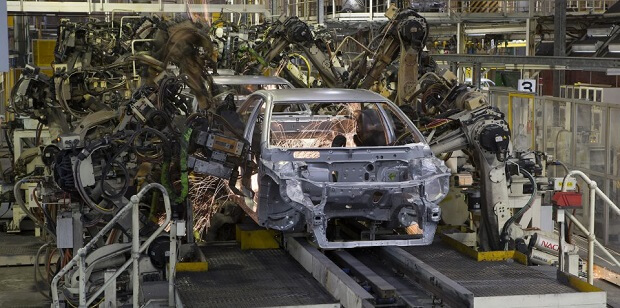
Globalisation of the world economy can have bitter side effects. The advantages of global connections by a fast internet or cheaper telephony also come with the disadvantages of cheaper forms of labour and the ease of movement of capital. Capitalism is not limited to geographical boundaries as corporates seek out opportunities around the world. Resources flow to options which best meet the demands of production and capital. Labour is a commodity which now can be sourced globally.
Australia has been hit hard by companies closing down their operations in this country. Ford, Holden and Toyota are all closing their manufacturing operations in Australia within three years. Engineering group Forge has cut 1,500 jobs and recently aluminium giant Alcoa announced the closure of its ageing Point Henry aluminium smelter and associated rolling works at Geelong and its rolling mill and recycling unit at Yennora in Sydney.
It is going to a tough time for the workers and their families going forward. They will need to be retrained and try their future in the job market. Those on the more elderly side will find it more challenging.
The question which emerges is, is manufacturing in Australia on its last legs?
The reality is that it is in a tough spot. The local labour market is highly regulated; the consumer market is very small and being on the doorsteps of some of the most populated countries of the world makes it difficult to compete on pricing. While the government has been able to prop up some companies with handouts in the past, it just does not make sense to continue doing this in the future.
There needs to be a radical rethink as to what we want future Australia to be like, especially for the next generation of Indian Australians. A big picture needs to be thought through and true leadership needs to be shown in forging this path forward. The government needs to decide also if it wants a ‘big Australia’ or a ‘sustainable Australia’. Former NSW Premier Bob Carr shut the debate on this effectively a few years ago when he stamped his authority on wanting Australia to slow down on population growth. Citing environmental reasons, including scarcity of land, this failed to take into account how countries like Singapore and Japan have coped well with limited land but large populations. With clever planning, a larger Australia will allow for greater domestic consumption and innovation with opportunities to succeed nationally.
While a road map for this objective can be mapped out, there needs to be more work in building a clever Australia. It has been raised in the past that opening the doors to higher educated PhDs to settle in Australia will allow for more research and development options. Perhaps it is time to set up a platform for this to happen.
Another lead which can follow is to encourage innovation and foster a culture of entrepreneurship within young Australians. Allow funding for start-ups be it in information technology or pharmaceutical or biotechnology. Rather than pushing young entrepreneurs to Silicon Valley to experiment with their ideas, create options through federal funding and encourage them to start up locally.
We do live in changing times indeed. The winners will be those who can innovate and work with the changes. A vision and conviction by our leaders is important if Australia needs to win in the long term.




